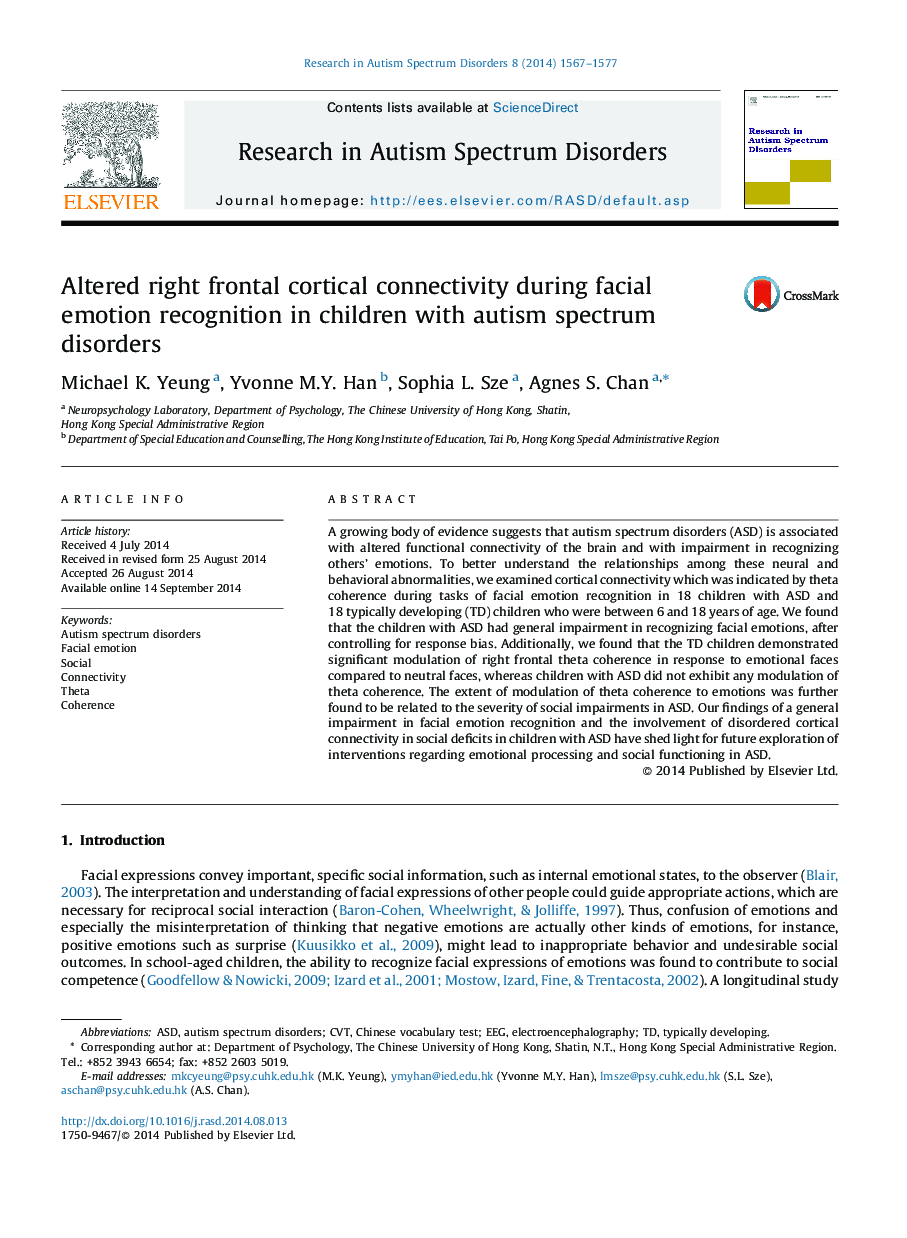| Article ID | Journal | Published Year | Pages | File Type |
|---|---|---|---|---|
| 10317104 | Research in Autism Spectrum Disorders | 2014 | 11 Pages |
Abstract
A growing body of evidence suggests that autism spectrum disorders (ASD) is associated with altered functional connectivity of the brain and with impairment in recognizing others' emotions. To better understand the relationships among these neural and behavioral abnormalities, we examined cortical connectivity which was indicated by theta coherence during tasks of facial emotion recognition in 18 children with ASD and 18 typically developing (TD) children who were between 6 and 18 years of age. We found that the children with ASD had general impairment in recognizing facial emotions, after controlling for response bias. Additionally, we found that the TD children demonstrated significant modulation of right frontal theta coherence in response to emotional faces compared to neutral faces, whereas children with ASD did not exhibit any modulation of theta coherence. The extent of modulation of theta coherence to emotions was further found to be related to the severity of social impairments in ASD. Our findings of a general impairment in facial emotion recognition and the involvement of disordered cortical connectivity in social deficits in children with ASD have shed light for future exploration of interventions regarding emotional processing and social functioning in ASD.
Keywords
Related Topics
Life Sciences
Neuroscience
Behavioral Neuroscience
Authors
Michael K. Yeung, Yvonne M.Y. Han, Sophia L. Sze, Agnes S. Chan,
